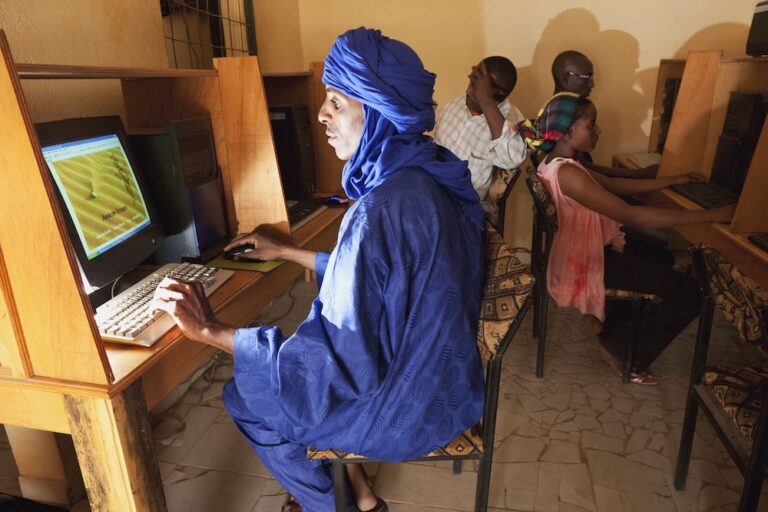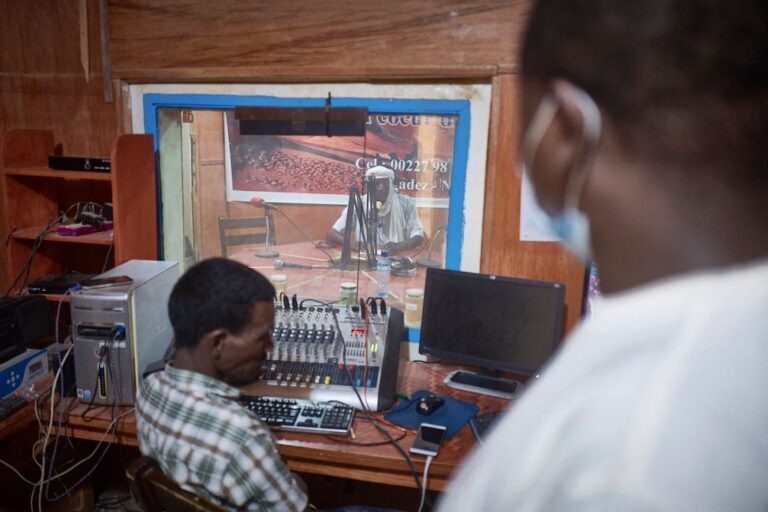(RSF/IFEX) – RSF has strongly protested the police’s forcible shutdown of at least three independent radio stations in Niger on 4 October 2003. The organisation called on the government to see to it that the stations are allowed to reopen and resume their broadcasts at once. “After cancelling the broadcasting licences of 10 stations, the […]
(RSF/IFEX) – RSF has strongly protested the police’s forcible shutdown of at least three independent radio stations in Niger on 4 October 2003. The organisation called on the government to see to it that the stations are allowed to reopen and resume their broadcasts at once.
“After cancelling the broadcasting licences of 10 stations, the authorities have now had the police close three of them – Alternative, Saraounia FM and Bitinkodji FM,” said RSF Secretary-General Robert Ménard. “This is a serious case of censorship, which must be reversed at once.”
Police occupied the studios of Alternative in the capital, Niamey, and forced the station’s journalists to stop working and leave the building. They then locked the offices and confiscated the keys. At least two other radio stations based elsewhere in the country were closed in a similar fashion.
The State Communications Council (Conseil supérieur de la communication, CSC) cancelled the licences of 10 privately-owned stations on 25 September, saying they were improperly issued, but the stations all said they would defy the order and remain on the air.
RSF also notes that Ibrahim Souley, editor of the weekly “L’Enquêteur”, has been incarcerated at Niamey Central Prison since 16 September (see IFEX alerts of 6 October and 18 September 2003). He is accused of criticising the misappropriation of funds in the handing out of government contracts. The State Prosecutor’s Office filed a complaint following the publication of an article in issue 169 of “L’Enquêteur”, in which the government was accused of contributing to the sudden wealth of local businessman Djibo Zakou. The weekly reported that business people from eastern Niger were angry that Zakou, who comes from the western part of the country, had received “juicy contracts.”


